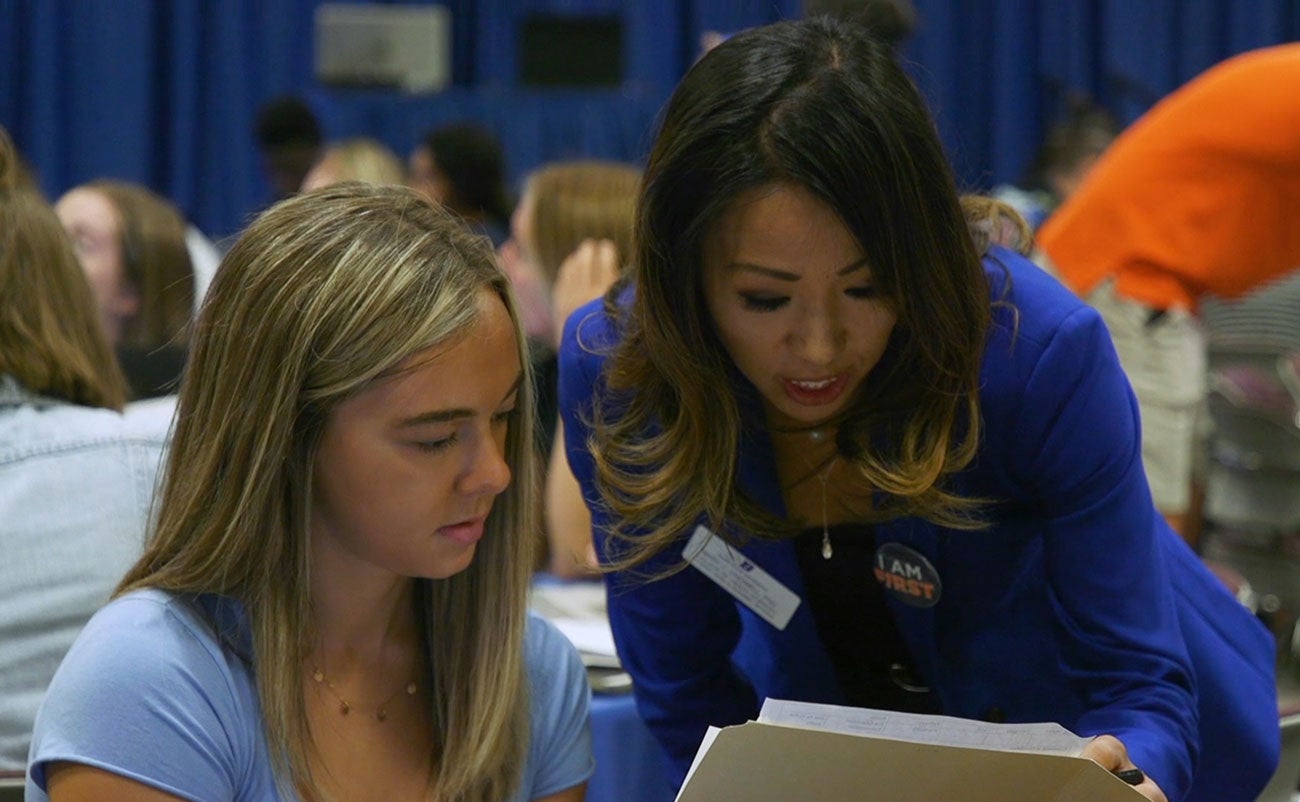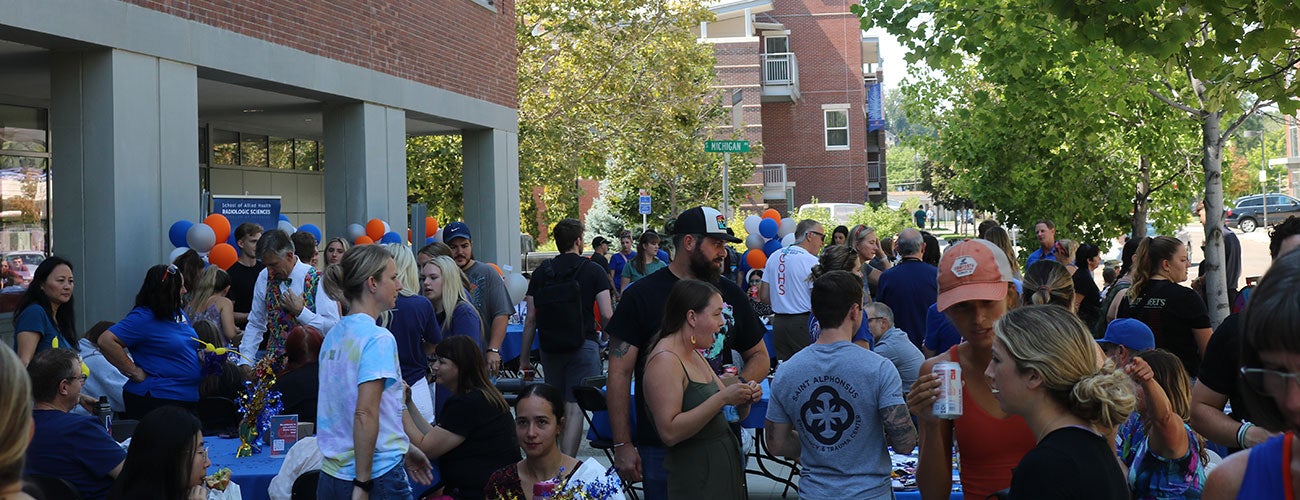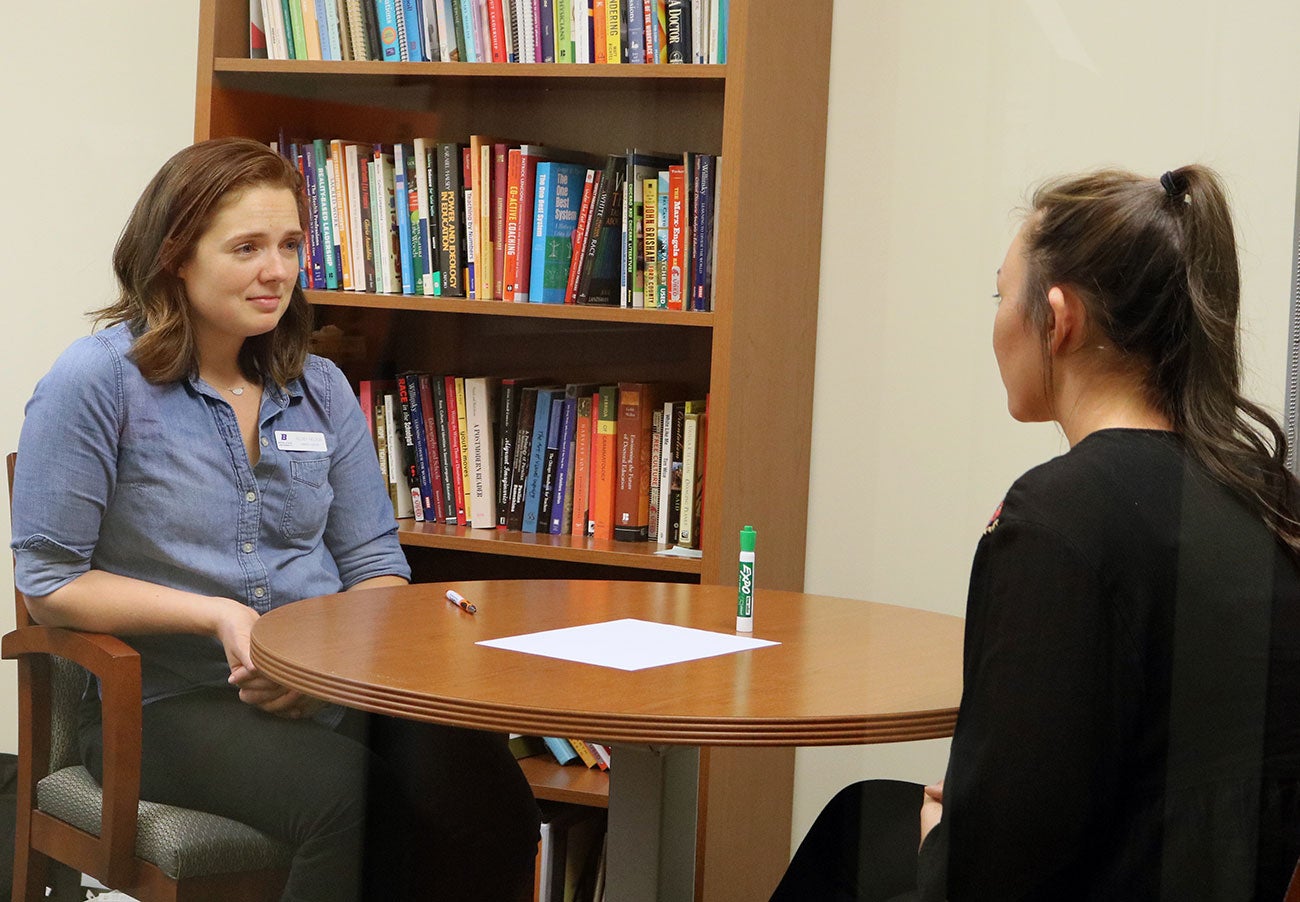
Mary Crowell, who hopped on as the College of Health Sciences’ Student Services and Academic Advising director about a year before COVID-19 upended meetings and get-togethers and so many plans, doubled down this fall.
Crowell – and her cheerful, energetic, can-do team of full-time and peer advisers – were everywhere, greeting newcomers, welcoming back returning students, joining Zoom meetings, making calls …
Students have felt the love – and said so, in surveys, in emails, in conversations – and it’s only now that a few of the newer members of the team will be able to complete training, having joined up just in time for the fall frenzy.
Crowell, director since April of 2019, is proud of what the group has been able to accomplish, taking what needed to happen particularly early in the pandemic and evolving that approach into a multi-modal suite of services that has her approach emerging as something of a model across campus.
As was the case with other programs, classes, labs and other university offerings, Crowell and her advisers pivoted during the COVID-19 shutdown, delivering services online.
The team continued with one-to-one meetings, held via the Zoom platform – and went much, much further. Crowell realized early on both the challenges students were facing and the potential to strengthen students’ connections to faculty, the college and the university, and held focus groups. She made sure that targeted connections happened with individual students, and arranged opportunities for newer students to hear from and meet those in upper-division studies.
Crowell could see that many were struggling, so advising took on added depth and dimension, with students discussing their pandemic challenges and struggles. More and more joined the conversations every week.
“It went pretty well,” she said. “Everybody was a team player and did what they had to do.”
Evolving to meet changing needs
Emerging from the pandemic, Crowell and the team are keeping the parts that worked. She credits Dean Tim Dunnagan and college administration for appreciating the demand for the services and making several new hires possible. Over the past year, the office has funded four additional advising positions, with three of those added this summer.
And an adviser-to-student ratio that earlier had been about one to 600 or 700 has been cut in half.
“It makes a huge difference in how quickly students can see an adviser now,” Crowell said. “The goal is to decrease wait times and build a wider scale of knowledge, so there’s better availability for everybody.
Crowell has also reorganized, splitting the team into groups that concentrate on students in the pre-clinical/pre-licensure study areas and those who focus on students in the fields that don’t require licensure.
She continues to add peer advisers; there are now seven peer advisers, all of them COHS majors, who support the advisers and college in keeping the Bronco vibe alive and meaningful among the student population. The peers meet with first-year and prospective students, support recruiting efforts and orientation events and programs – and are everywhere, in person and on Zoom, during the fall welcome-back barbecues, orientations and other activities.

“They’re awesome,” Crowell said. “They help us so much.”
Given the team’s expansion, Crowell set the goal of reaching all of the approximately 1,000 students brought into the COHS fold this summer. The energy of the new advisers and peers was infectious, and went a long way toward easing the transition in particular among those with post-pandemic social jitters.
“I think they like having the peer perspective,” Crowell said. “They’re in the classes with them, they’ve applied, they know what it’s like and they’re going through the programs themselves.
“There’s a ton of students. It’s very fast.”
Encouraging holistic student success
The team has its work cut out for it. Crowell has observed that, among other things, students are not as confident in their readiness as they were before the pandemic, in math skill levels for example. And as her colleagues in University Health Services know all too well, many students are struggling with mental health and resilience.
“People are glad to have the events back in person and are happy to gather again, so they’re appreciative of being back,” she said. At the same time, when it comes to mental health programs in particular, “Those services are much more utilized. Folks are more willing to use those resources and it’s more acceptable to talk about it.”

Given emerging needs, Crowell and her team are more likely to work upstream, looking to identify needs early and to make early referrals. Stress and mental well-being workshops and additional supportive programming will roll out earlier; there are likely to be additional opportunities to hear others’ perspectives as well.
“We’re doing more workshops where we’re bringing in guest speakers and we’re really trying to promote the different resources on campus, whether that be counseling or tutoring, the food pantry, the Dean of Students office …” she said.
She’s proud that the team has continued to innovate, and points to the podcast put together by one of the advisers and a popular collaboration with Career Services for students applying to medical schools to practice interviewing as examples.
“It’s great to identify some of the needs and areas for these students and to deliver these services for them,” she said.
“There’s just a lot of different things that we do, that I think support our college and our students, that a lot of people probably are not aware of.”